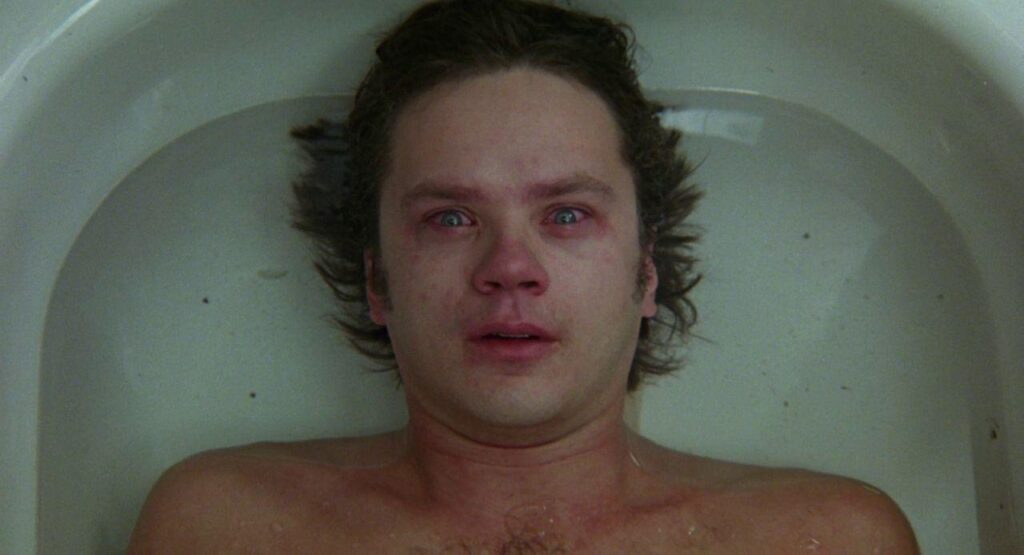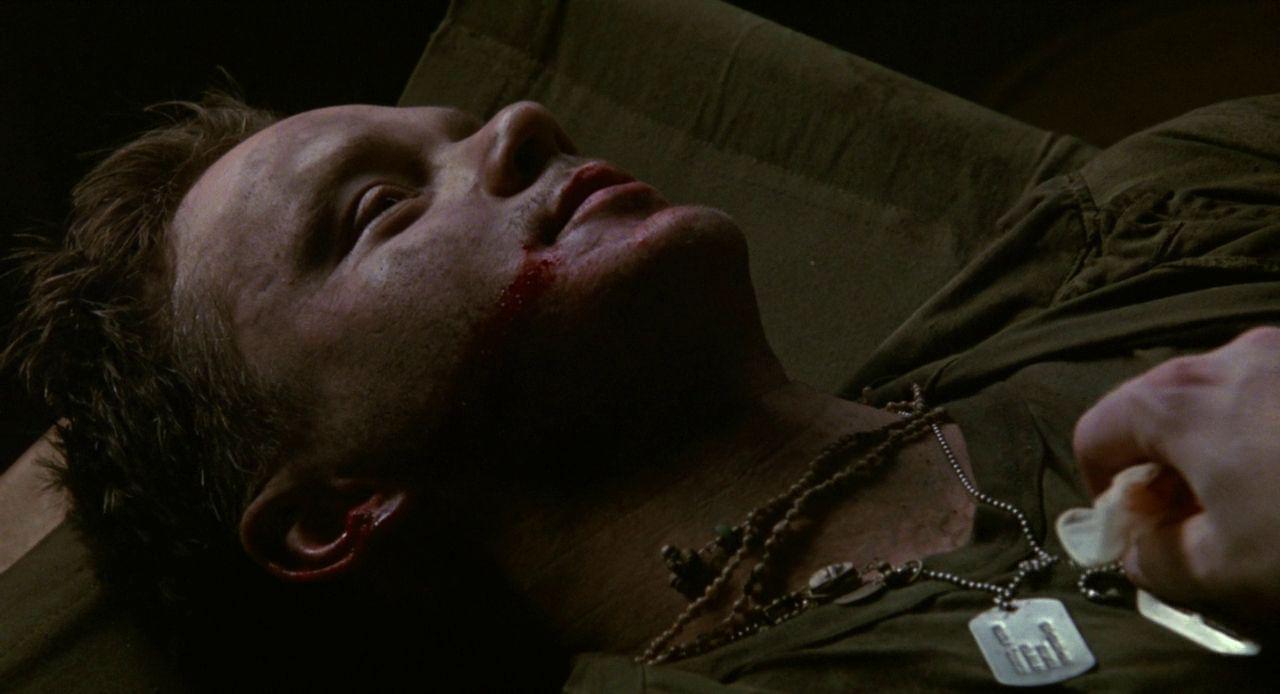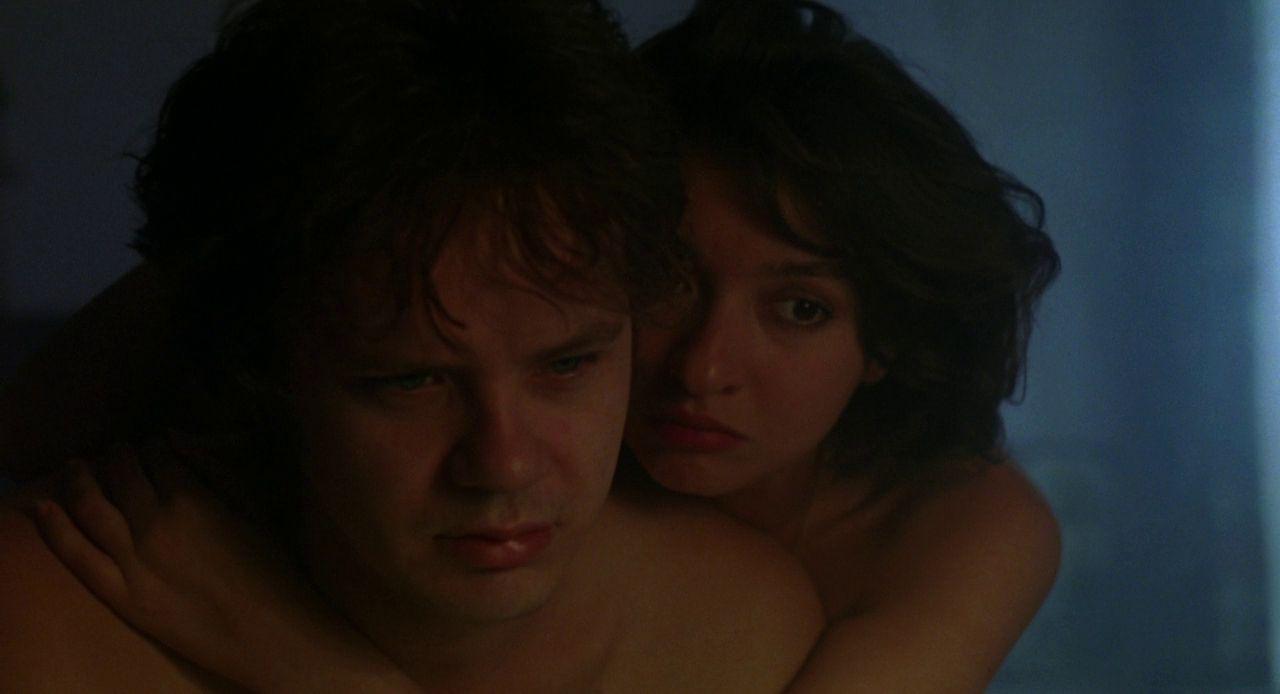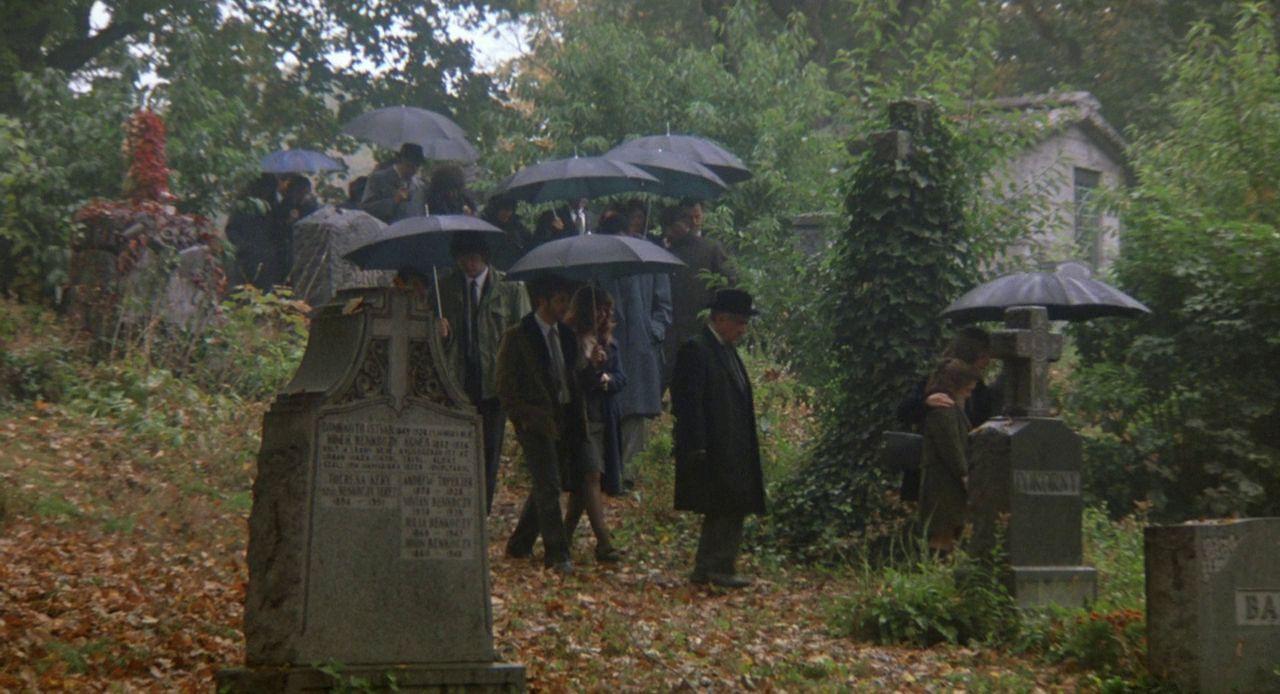
There’s a particular shade of dread that clings to Jacob’s Ladder—something clammy and feral that burrows under your skin long after the credits crawl away.
It’s not just a ghost story or a Vietnam vet’s fractured hallucination; it’s an existential vivisection. This is the film that peels open the soft gray matter of guilt and grief, and demands we look at the wriggling things inside.

At its heart, Jacob’s Ladder is a study in psychological limbo—a portrait of a man (and maybe all of us) stuck halfway between this life and whatever purgatory waits beyond. Tim Robbins’ Jacob Singer isn’t just haunted by demons—he’s haunted by the memory of who he was, by the unthinkable acts done in war, by the family he’s failed to protect. But these aren’t mere plot points; they’re festering wounds. Adrian Lyne films each vision with the frantic eye of a fever dream, giving the audience no safe place to stand. We become prisoners in Jacob’s splintering mind.
Psychologically, the film devours the Freudian idea that repression is never truly buried. Jacob’s grief for his dead son Gabe is the rotting core of his subconscious, and his time in Vietnam is the festering battlefield he drags home in his veins. The ladder is more than a biblical symbol—it’s the fragile rungs of Jacob’s sanity, each one splintering under the weight of unprocessed horror.

The terrifying genius of Jacob’s Ladder is that it strips away the tidy distinction between victim and monster. Jacob is both. His visions of horned creatures and twitching faces aren’t demons in some Lovecraftian abyss—they’re the contorted truths of his own mind. They represent the corruption of the soul under the boot of violence and guilt.
Lyne weaponizes disorientation. The city becomes a labyrinth of flickering fluorescent lights, grimy subway stations, and fevered whispers. The mundane mutates into the monstrous, reflecting how trauma infects every corner of the psyche. In the end, we’re left with a question more terrifying than any jump scare: If this life is hell, is the next one any better?
Like the best psychological horror, Jacob’s Ladder doesn’t ask you to simply witness terror—it asks you to feel it metastasize. It invites you to descend rung by rung into your own guilt, regret, and fear of what’s waiting at the bottom. The real horror isn’t the demons that claw at Jacob’s face; it’s the possibility that they’re right—that the only way out is to embrace your own annihilation.





